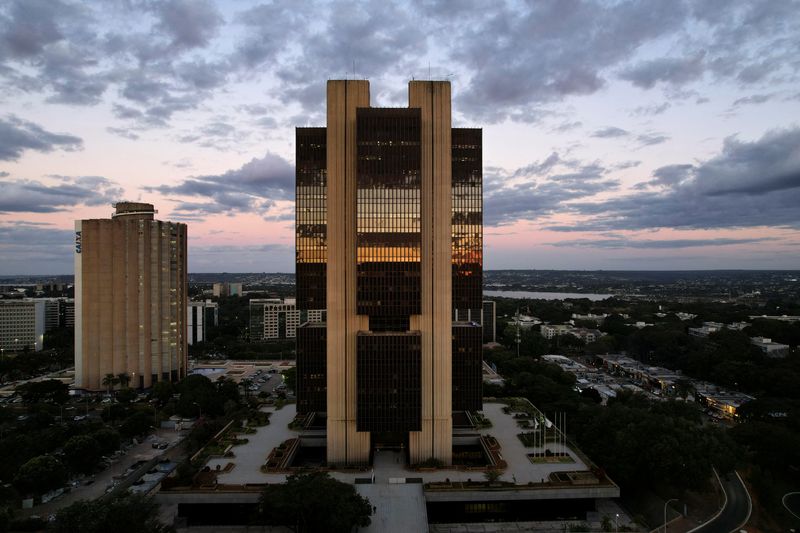(Reuters) - Brazil's central bank chief Roberto Campos Neto said on Monday that the volume of subsidized credit in the country has not grown to a point it would impact monetary policy.
"It has increased, but not to the extent, as of now, that will change dramatically the neutral rate," he said, referring to the equilibrium rate that neither cools nor overheats the economy.
Speaking at an event hosted by Deutsche Bank in London, Campos Neto also noted that private debt securities benefiting from income tax exemptions have risen significantly but likewise do not impact monetary policy, as they do not constitute a credit segment insensitive to the benchmark interest rate.
Campos Neto reiterated that Brazil needs to signal fiscal measures that could be seen as a positive shock to address premium risk in interest rate futures, which he said are currently affected by lack of confidence in the sustainable management of public accounts.
The central bank governor added that while he was not informed of the measures, their impact would not mechanically alter monetary policy.
However, he noted that if perceived as a positive shock, they could potentially influence the long-end of the yield curve, the exchange rate and inflation expectations.
"Those variables are important because they are part of our reaction function," he said.
Finance Minister Fernando Haddad said that President Luiz Inacio Lula da Silva's government would unveil measures to control mandatory expenses following the municipal elections held on Sunday.
Campos Neto also stated that inflation figures in the country have been mixed, highlighting the need for policymakers to have time to analyze the data.
